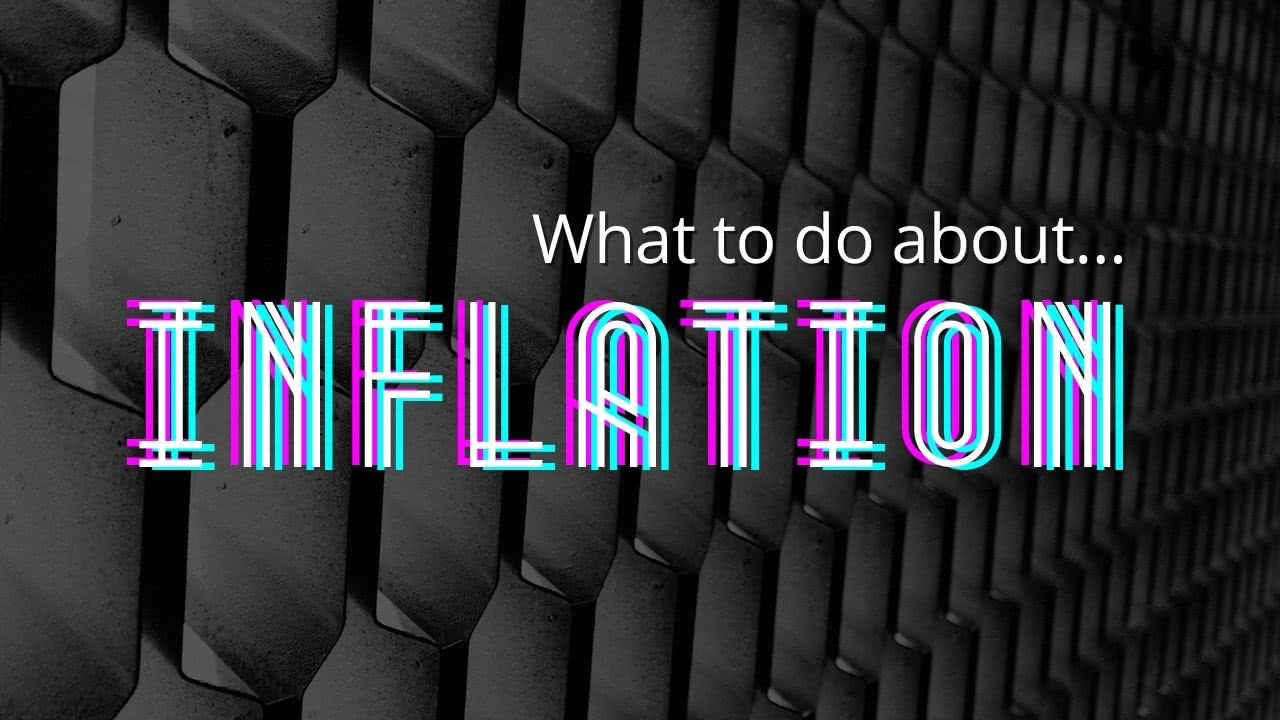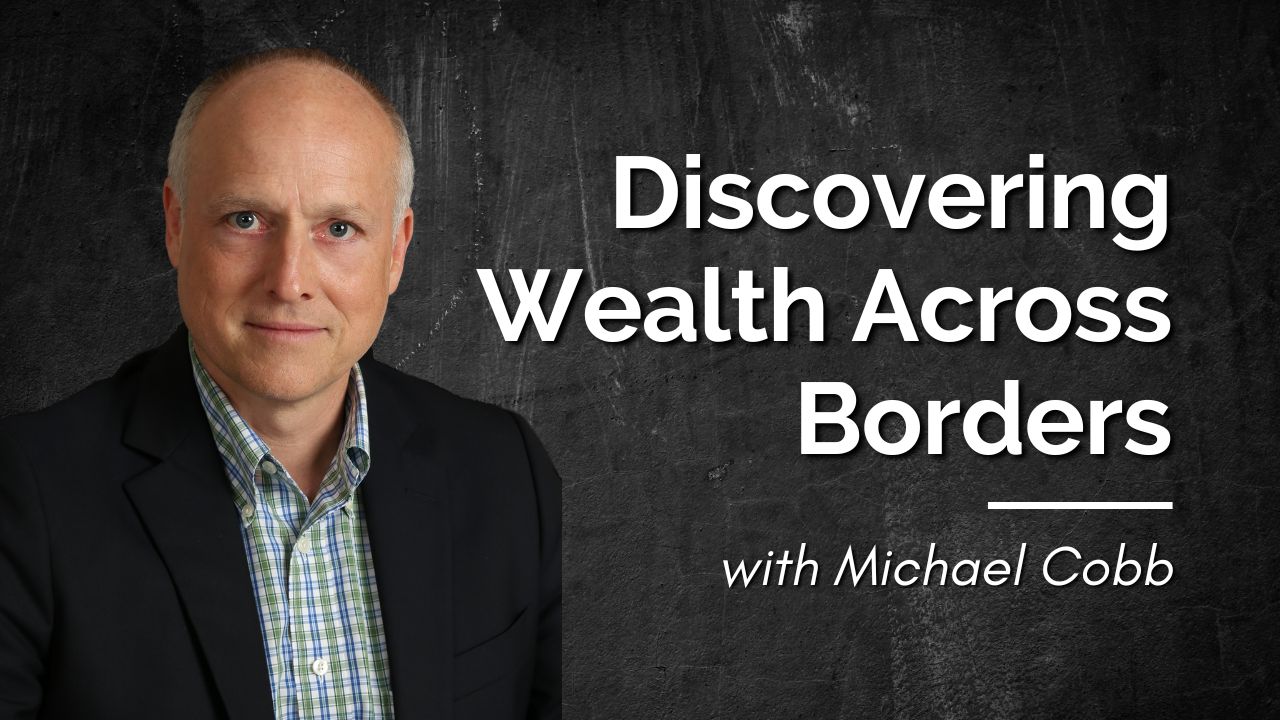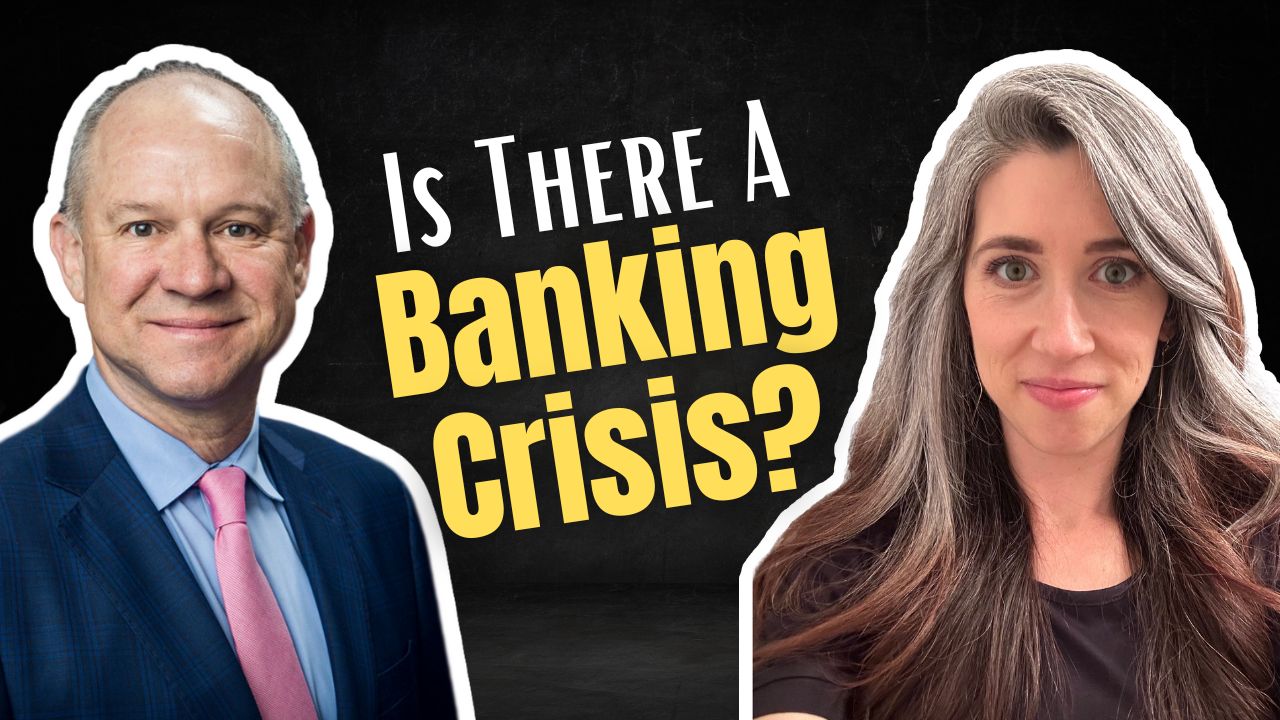
What to Do About Inflation
Inflation is in the news. Should you be concerned? What should you do to make sure you’re protected?
In today’s conversation, we’ll talk about inflation, the consumer price index, and how to stay financially strong so you can build financial freedom. Join us below for the conversation!
Podcast: Play in new window | Download (Duration: 57:28 — 65.8MB)
Subscribe: Apple Podcasts | Spotify | Android | Pandora | RSS | More
Table of contents
What is Inflation?
The most common belief about inflation is that businesses raise their prices to make more profit. However, it’s much more than that. Inflation is linked directly to the money supply. And when the money supply increases, prices tend to increase in proportion.
The feeling of inflation is that your dollars do not go as far—that prices are increasing for items, without the volume rising. It feels as though your dollars are worth less.
Investopedia defines inflation as “the decline of purchasing power of a given currency over time. … Inflation can be contrasted with deflation, which occurs when the purchasing power of money increases and prices decline.”
If you look at the overall inflation from 1913 to now, there was an average increase of about 3% per year. While in reality some years inflated more or less, we can expect an upward trend in the future—give or take.
The Consumer Price Index
If you’re wondering how inflation is calculated, it’s calculated through something called the Consumer Price Index. Investopedia defines this as “a measure that examines the weighted average of prices of a basket of consumer goods and services, such as transportation, food, and medical care. It is calculated by taking price changes for each item in the predetermined basket of goods and averaging them.”
What’s interesting is that not all the items you may see inflate are included in this basket of goods. So just because there is a certain inflation rate doesn’t mean that you’ll experience that increase exactly with all products.
The way you may experience inflation is going to depend largely on your geographic location. There’s personal inflation, city inflation, state inflation, national inflation, and international inflation. That’s why your money might go farther (or not as far) when you travel to other countries.
You can see the CPI history for yourself on the Bureau of Labor Statistics site.
CPI Has Risen More than Expected
At the time of writing, the CPI has increased by 0.6% since March, and is up 2.6% since last year. That’s more than projected and represents the highest year-over-year gain since 2018. With inflation rates increasing, there’s considerable conversation about how that’s going to impact Americans.
Most notably, gas prices have skyrocketed. In March, gas prices increased by 9.1%, and is up 22.5% from last year. These fluctuations have had a big influence on the CPI in an indirect way. The CPI doesn’t factor in gas or energy directly because of how volatile the prices can be. And more importantly, because gas and energy prices directly impact the prices of goods like groceries, because of what it takes to produce and transport them.
Will the Fed Raise Interest Rates?
Despite inflation projections, the Fed has made a statement that they’re unlikely to hike interest rates in response—even with a strengthening economy. Instead, they will continue to commit $120 billion a month to bond purchases.
We see it this way—if the Fed raised rates now, and something stopped the growth we’re seeing, they wouldn’t have any “bullets in their gun.” It would be more difficult to drop the rates if needed, than to continue riding the low rates for the time being.
Financial Freedom in the Face of Inflation
How do you create more certainty and create time and money freedom for yourself, even in the face of inflation? While saving is the cornerstone, regular savings won’t outpace inflation on its own.
First, it’s important that as inflation rises, your income rises as well. Otherwise, any debt you have can stymie your growth. For example, if your credit card payment increases, or the feeling of that payment does, and your income does not, it’s a much bigger burden on you. Suddenly, you’re allocating more of your dollars on past purchases than saving for the future.
The next step is to stay calm. What you need is a level head—before acting out of fear, slow down. Making rash financial decisions can negatively impact your objectives. Instead, focus on the principles of wealth:
- Paying yourself first
- Saving a percentage of your income
- Leverage assets with safety and liquidity
- Choose assets that keep up with inflation
- Seek as much growth as possible
- Invest in what you know and can control
We’ve found that Privatized Banking strategies with cash value insurance help you to grow money safely and with liquidity. Then you can leverage that cash value to make smart investments that facilitate cash flow.
Resources and Links:
Book A Strategy Call
Do you want to coordinate your finances so that everything works together to improve your life today, accelerate time and money freedom, and leave the greatest legacy? We can help!
Book an Introductory Call with our team today https://themoneyadvantage.com/calendar/, and find out how Privatized Banking, alternative investments, or cash flow strategies can help you accomplish your goals better and faster.
That being said, if you want to find out more about how Privatized Banking gives you the most safety, liquidity, and growth… plus boosts your investment returns, and guarantees a legacy, go to https://privatizedbankingsecrets.com/freeguide to learn more.
Discover Wealth Across Borders -Michael Cobb
It is time to discover wealth across borders. Have you ever wondered what it’s like to invest internationally, live as an expat, or find a balance between work and play while enjoying life abroad? In a fascinating episode of our podcast, we sat down with Michael Cobb, a renowned figure in residential resort development and…
Read MoreIs There a Banking Crisis? Silicon Valley Bank 2023
If you’ve paid any attention to the news recently, then you’ve probably heard about what’s happening with the Silicon Valley Bank. The news isn’t good, and it’s probably raising some questions. We’re here to unpack what you might be thinking about. Like, are we entering a banking crisis, and what does this mean for the…
Read More


